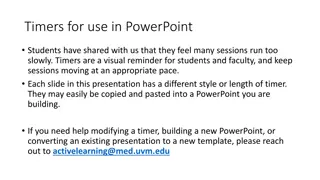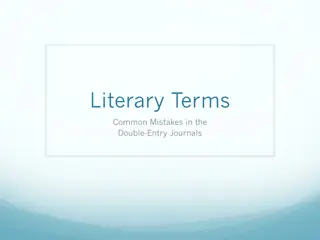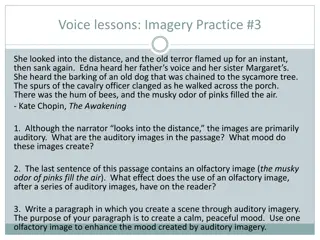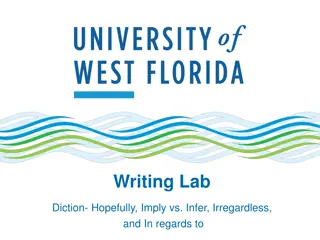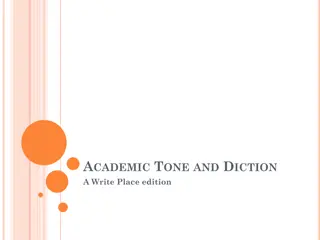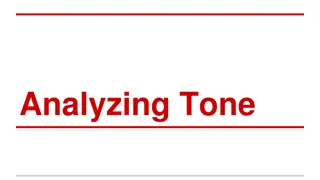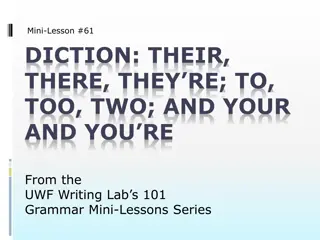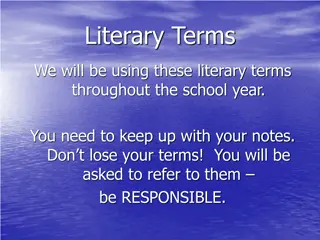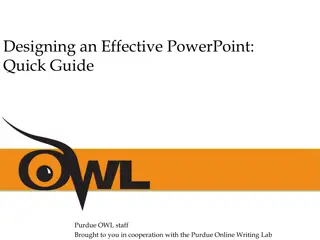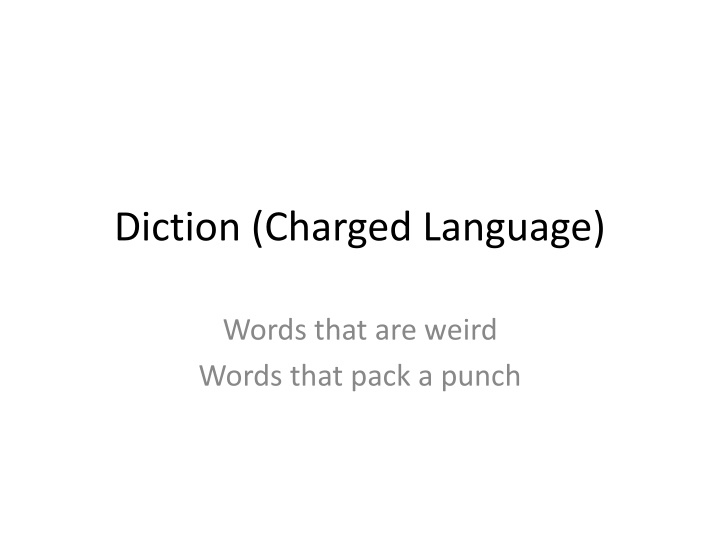
Unleashing the Power of Charged Language in Diction Analysis
Dive into the world of diction, exploring the impact of charged language in conveying emotions and nuances. Understand how word choice influences tone, formality, connotation, and rhetorical tropes in writing. Uncover the secrets behind using weird and powerful words that pack a punch.
Download Presentation

Please find below an Image/Link to download the presentation.
The content on the website is provided AS IS for your information and personal use only. It may not be sold, licensed, or shared on other websites without obtaining consent from the author. If you encounter any issues during the download, it is possible that the publisher has removed the file from their server.
You are allowed to download the files provided on this website for personal or commercial use, subject to the condition that they are used lawfully. All files are the property of their respective owners.
The content on the website is provided AS IS for your information and personal use only. It may not be sold, licensed, or shared on other websites without obtaining consent from the author.
E N D
Presentation Transcript
Diction (Charged Language) Words that are weird Words that pack a punch
Diction (aka Charged Language) Diction: choice of words, especially with regard to correctness, clarity, and effectiveness. When analyzing diction, look at individual words and ask What feeling do these words create? Does this feeling fit the speaker s purpose, audience, and occasion? Why is the author using these specific words?
Diction Pay attention to: The weird words the uncommon words, or the familiar words that are used in a surprising way. Words that hit that pack a lot of emotional punch because they are unexpected or blunt.
Diction and Tone A word about Tone. Tone = the author s attitude toward his or her subject. Is the author celebrating the subject? Is she condemning the subject? Is she simply curious about the subject? Is the tone formal/academic? Is it more conversational?
Diction and Tone Diction Tone The author s diction reveals his/her tone. The author s tone decides his/her diction.
Diction Diction can vary in a few ways: 1. Formality 2. Degree 3. Connotation (what a word suggests in addition to its meaning). 4. Concrete vs. Abstract 5. Rhetorical tropes
Formality Formality: (formal vs. conversational) Crib vs. Home vs. Domicile *Which one you use depends on the occasion, audience, and tone of your writing. Archaic diction = intentionally using old- fashioned words to give a sense of historical importance. Ex. Someone using Four score and seven years ago in a speech today.
Degree His efforts were good. His efforts were admirable. His efforts were exemplary. Each word gives a different sense of degree.
Connotation Look at the following sentences: The students in that school are well-behaved. The students in that school are obedient. What is the difference?
Connotation What is the difference between the two words: Cheap Inexpensive
Connotation What is the difference between the two words: Determined Stubborn
Concrete vs. Abstract Diction Concrete = Able to be touched or seen; tangible. Abstract = Something that only exists in one s mind; not able to be touched. Ex: We must rely on hope and love. (Abstract) We must rely on our hands and muscles. (Concrete)
Tropes = special diction Ex: Metaphors Clich s Symbolism Personification Idioms/slang Euphemisms Other types of figurative language
Pro Tips The author uses diction. Put an adjective in front of diction: The author uses [formal, inflammatory, suggestive] diction. Put a verb after diction: The author s diction [reveals, suggests, shocks] ________.
Pro Tips You can say the author uses charged language. Discuss why an alternative, similar word would have been less effective given the author s purpose.




